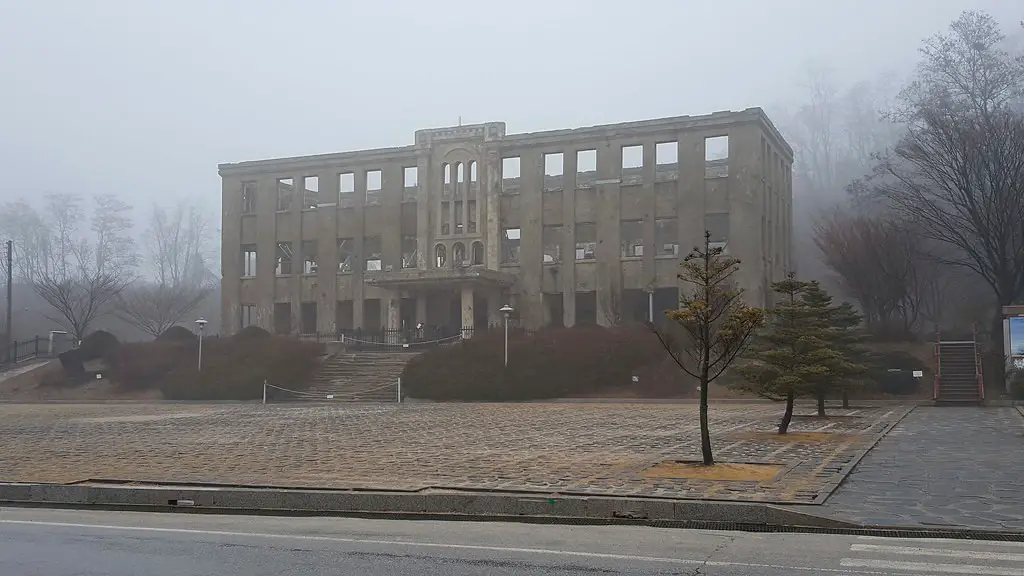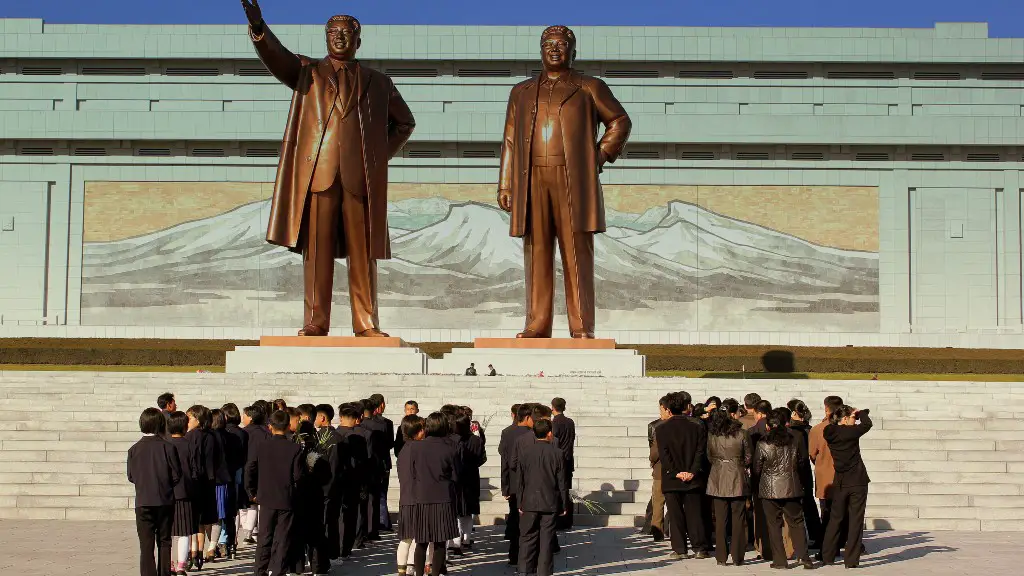Background
The story of who gave North Korea nuclear capability is a complicated one. It dates back to the Cold War and involves multiple players spanning several decades. North Korea’s nuclear ambitions began shortly after the Korean War when the Stalinist regime looked to increase its strength against the US and its allies through the development of nuclear weapons. To do this, the North Koreans began to seek outside help. Initially, the USSR was their main source of assistance, with Soviet experts providing guidance and technology to the North Koreans.
By the mid-1980s, however, the USSR had withdrawn its support due to a newfound sense of cooperation with the United States during the Reagan Administration. This cooperation led to the signing of numerous bilateral arms agreements which promised to limit the spread of nuclear weapons. The USSR provided North Korea with nuclear reactors, material and expertise during the late 1950s and early 1960s but discontinued their support after the agreements.
China?
The withdrawal of Soviet support left North Korea looking elsewhere for help. As their main ally in the region, China stepped in to provide them with the assistance needed to build a nuclear weapon. Chinese experts provided North Korea with knowledge and materials to help design and construct their first atomic bomb by the late 1980s. Through the years China has continued to be a major source of material, including vital components for the production of plutonium and uranium. Chinese companies have also been linked to the trade of components which could be used for the development of missile technology.
Pakistan
The involvement of Pakistan in the North Korean nuclear program has been well documented by various analysts. Not only did Pakistan provide technical training and advice to North Korea, it also supplied vital nuclear components such as uranium enrichment plants. Pakistani scientists have also traveled to North Korea to offer advice on using enriched uranium. North Korean scientists have taken part in Pakistani nuclear testing at the site of Chagai.
Iran
The involvement of Iran in North Korea’s nuclear program is less well known, but just as important. Iranian scientists have traveled to North Korea to share knowledge and expertise in uranium enrichment technology. Iran is also believed to have supplied North Korea with components for its nuclear weapons program, including uranium. Reports suggest that Iran has also assisted in the construction of several North Korean nuclear test sites.
Russia
Russia has also been involved in providing North Korea with nuclear capability, albeit in a limited way. Russian scientists have provided advice and materials to help North Korea construct nuclear-capable missiles. Russia has also stepped in with diplomatic support for North Korea when needed, and in recent years has been involved in helping Pyongyang to restart talks with the US on nuclear disarmament.
Financial Sources
North Korea has also been able to leverage its own financial means, as well as state sponsored black markets, to acquire components and expertise needed to build nuclear weapons. North Korean leaders have been willing to pay high prices for key components and technology, drawing on resources such as proceeds from narcotics trafficking, counterfeiting, gold, and gem smuggling. North Koreans have also tapped into offshore accounts to purchase materials and expertise needed for their nuclear weapons program.
US Influence
The United States has had an indirect role in North Korea’s nuclear capabilities. Throughout the Cold War, the United States maintained an expansive presence in South Korea, a move which North Korea saw as a form of aggression. This led to the North Koreans seeking outside assistance to counter US influence in the region, and motivated their pursuit of nuclear weapons as a deterrent. The US also increased economic sanctions against North Korea in 2006, leading Pyongyang to accelerate their nuclear weapons program as a way to ensure their survival.
Consequences
The consequences of North Korea’s access to nuclear capability have been far reaching. The regime has used their nuclear weapons as a way to gain leverage over other countries, as well as to attempt to undermine US influence in the region. North Korea has also continued to conduct nuclear tests, threatening the security of their neighbors and undermining their commitment to non-proliferation. Additionally, the international community has been unable to find a diplomatic solution to the North Korean nuclear issue, and the proliferation of nuclear weapons worldwide has been a growing concern.
Implications for the Future
The future looks uncertain for North Korea’s nuclear ambitions. Despite numerous rounds of international sanctions, Pyongyang has continued to develop their nuclear capabilities, and it is unclear how long the US and other nations will be able to contain their nuclear activities. Additionally, the North Korean regime may attempt to use their nuclear weapons as a deterrent in international disputes. For now, the rest of the world can only hope that North Korea will take steps towards disarmament and agree to abide by international non-proliferation protocols.
The Role of the International Community
The international community has definitely played a role in North Korea’s nuclear ambitions. Through trade embargoes, diplomatic engagement, and a global non-proliferation regime, the international community has tried to exert pressure on North Korea to abandon their nuclear program. Unfortunately, these efforts have been largely unsuccessful, with North Korea continuing to develop their nuclear capabilities in spite of international opposition. In order for the international community to effectively deal with the North Korean nuclear issue in the future, a unified strategy must be developed and implemented.
How Can North Korea be Denuclearized?
The issue of denuclearization in North Korea is complex and requires a multi-pronged approach. In order to achieve lasting peace, the country must be willing to dismantle its nuclear arsenal and agree to non-proliferation protocols. This can be done through both carrot and stick approaches, such as offering the regime tangible economic and security benefits in exchange for disarmament, or tough economic sanctions and other forms of pressure. In addition, the international community must work together to develop creative approaches to the problem, and the US must attempt to engage Pyongyang in dialogue to find a meaningful and lasting solution.


